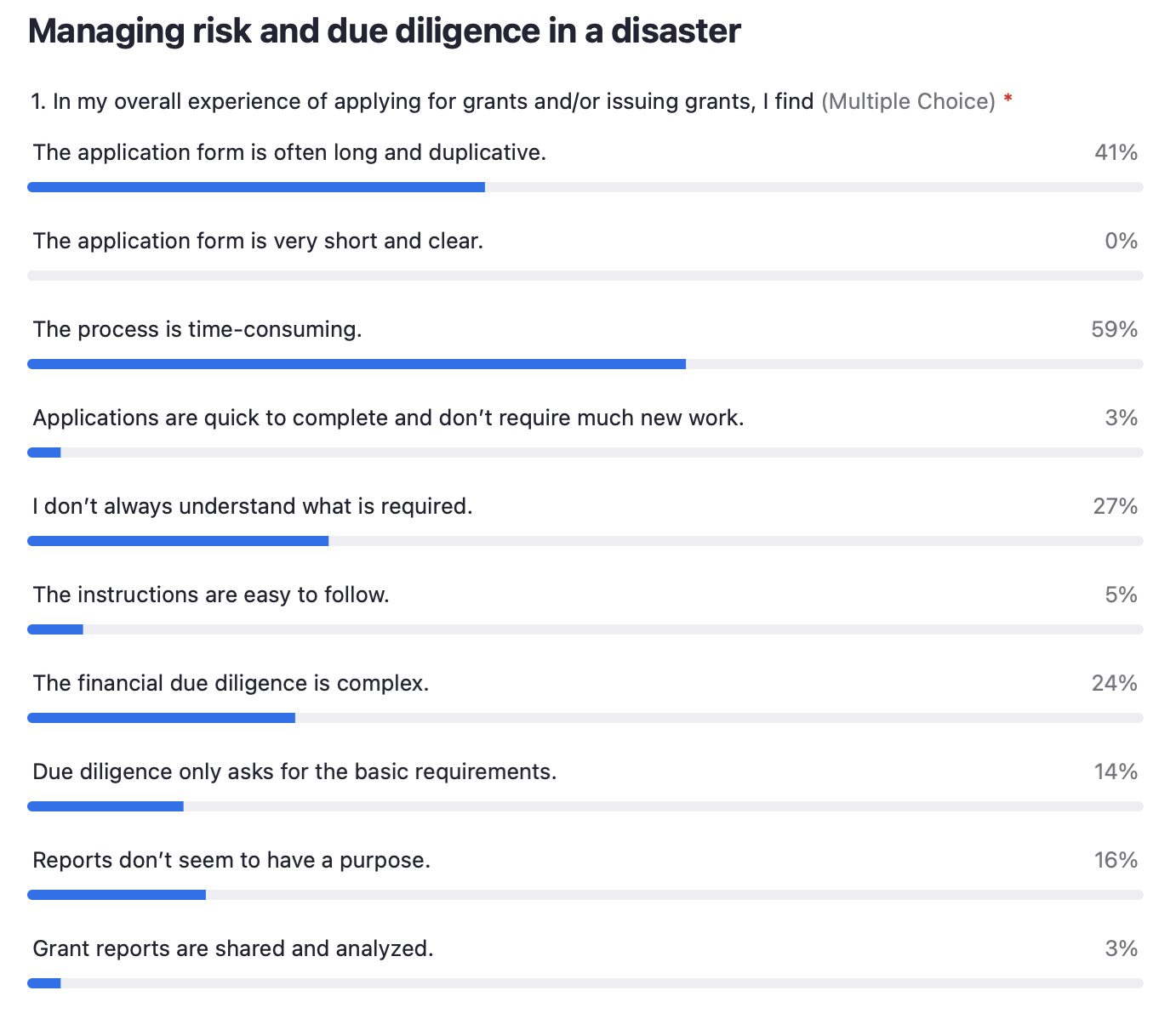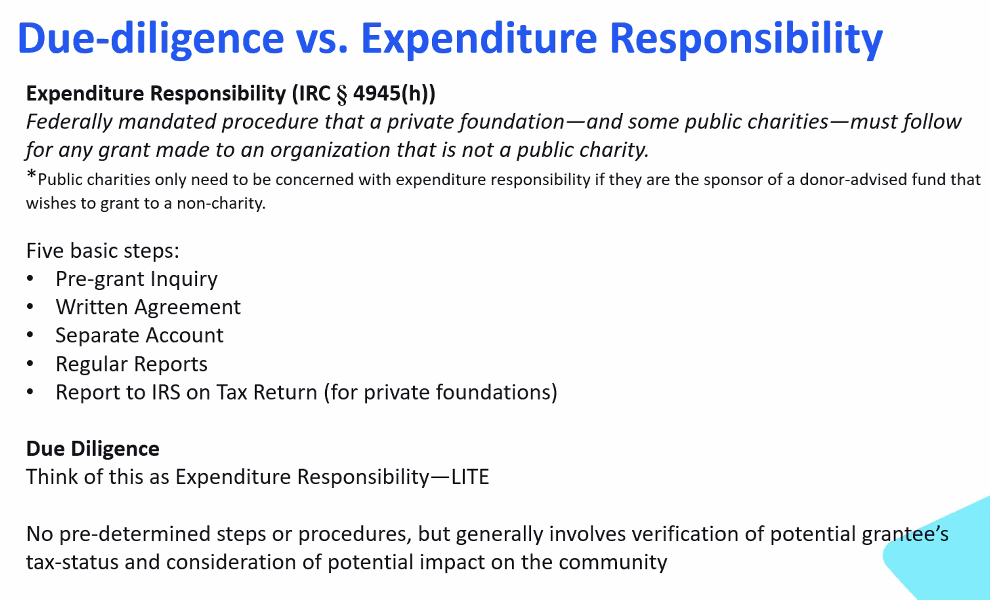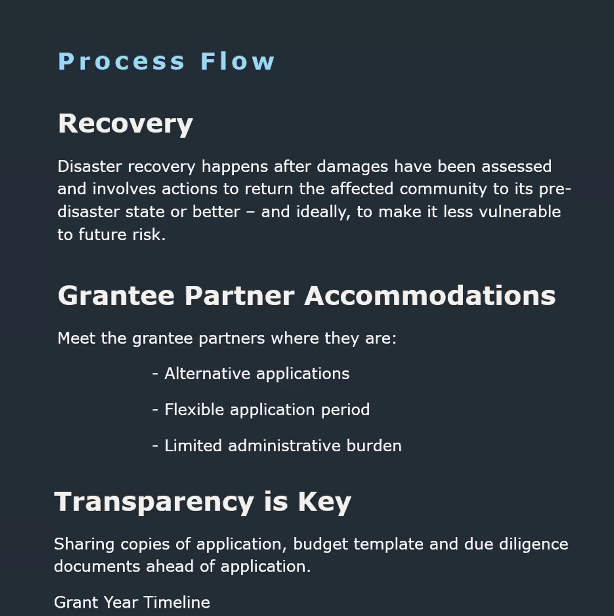What is Giving Compass?
We connect donors to learning resources and ways to support community-led solutions. Learn more about us.
Search our Guide to Good
Start searching for your way to change the world.
If you’re a small foundation focused on disaster philanthropy, how do you balance IRS due diligence requirements with the need to move quickly during a crisis?
The Center for Disaster Philanthropy (CDP) recently hosted a webinar – Managing Risk and Due Diligence in a Disaster Context – examining best practices for grantmaking entities, including how to minimize the burden on grantee partners. Some of these insights can also be used by individual donors to guide their own giving or to help with the selection of an intermediary to strategically disperse funds on their behalf. CDP Chief Financial Officer Jennifer Commander moderated the conversation featuring Remy Barnwell, Staff Counsel, Council on Foundations; Katrina Julien, Senior Program Officer, Community Foundation for Greater Atlanta; and Audrey Kidwell, Grants Manager, CDP.
The webinar opened with a poll that revealed the grant application process is often burdensome to grantees and impedes their ability to do essential work in disaster contexts.

However, grantmakers do have to meet certain legal reporting requirements, so how can they collect necessary information without slowing down the work that they are trying to support?
Barnwell highlighted the importance of legally required reporting and general due diligence:

Barnwell emphasized the importance of balancing diligence with speed, providing the following guidelines:
- Grant to public charities, especially those near the disaster. Community foundations can be a good option as they are familiar with the community’s needs and how to best address challenges.
- Consider IRS requirements as a floor, not the ceiling.
- Err on the side of over-reporting, rather than under-reporting.
When it comes to how to make your grantmaking swift while maintaining diligence, CDP and the Community Foundation for Greater Atlanta shared processes that can serve as models for others.
For instance, the Community Foundation for Greater Atlanta improved its processes by:
- Updating grant cycle guidelines.
- Holding listening sessions with nonprofit partners.
- Clarifying language.
- Right-sizing financial requirements.
- Adjusting/clarifying staffing requirements.
Kidwell shared recommended practices based on CDP’s experience.

Whether you’re a small foundation or individual donor, the key message is the same: Reduce the burden on grantees to ensure communities can move swiftly in a time of crisis. Giving through an intermediary, like a community foundation or CDP, can be an effective option if you’re not familiar with the affected community but want to help.
Commander offered a final point: Grantmakers should be asking grantees for “as little as possible, as much as necessary.” This mantra will serve all givers who want to make an impact during a disaster.
Watch the full webinar at the Center for Disaster Philanthropy.
Categories:
- Family Philanthropy
- Impact Philanthropy
- Global
- Disasters